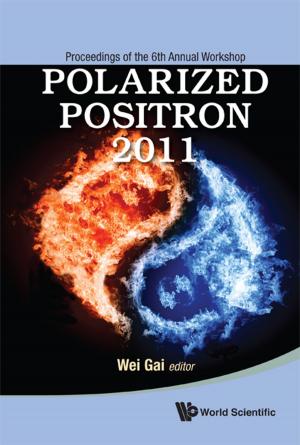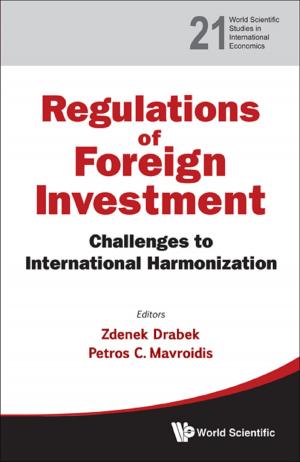De-Politicization of Ethnic Questions in China
Nonfiction, Social & Cultural Studies, Social Science, Cultural Studies, Ethnic Studies, Sociology| Author: | Lizhong Xie | ISBN: | 9789814513876 |
| Publisher: | World Scientific Publishing Company | Publication: | December 30, 2013 |
| Imprint: | WSPC | Language: | English |
| Author: | Lizhong Xie |
| ISBN: | 9789814513876 |
| Publisher: | World Scientific Publishing Company |
| Publication: | December 30, 2013 |
| Imprint: | WSPC |
| Language: | English |
De-politicizing issues of ethnicity is a new theoretical approach to study ethnic questions actively propounded and elaborated by Professor Ma Rong of Sociology Department of Peking University in the past ten years. In the recent years, this theoretical approach has aroused biggish responses from the academic community in Mainland China, the relevant government departments, and the general public. It is likely to elicit vigorous discussions in the years ahead.
The book contains eight selected chapters which represent the main contributions to the debate. The first chapter by Ma Rong is the key paper where in he lays out his main ideas and arguments. The remaining chapters deal with both positive and negative responses to the first chapter, and his replies to them.
Contents:
- A New Perspective in Guiding Ethnic Relations in the 21st Century: “De-Politicization” of Ethnicity in China (Ma Rong)
- Establishing a Socialist Harmonious Society and National Relations (Hao Shiyuan)
- The Two Required Principles for Evaluating National Policies from an National Perspective (Zhou Daming)
- Establishing a Multinational Harmonious Society and Resolving National Issues — “Depoliticizing” and “Culturizing” National Issues (Chen Jianyue)
- Evaluation on the “Nation Building” of India by the United Nations Development Programme (Ma Rong)
- On “Afterthoughts” of China's National Issues and “Being Practical” — Debating Ma Rong (Wang Xien)
- My Views on “Depoliticizing” National Issues (Chen Yuping)
- Current Crux and Solutions to Current Ethnic Issues in China (Ma Rong)
Readership: Academics, graduates, undergraduate students, and professionals interested in China's ethnic issues and de-politicization issues of ethnicity.
Key Features:
- Prominent Chinese authors whose ideas are vital to understand the current situation and future trends of de-politicizing issues of ethnicity in China
- This volume provides the most representative and comprehensive Chinese perspectives on its ethnic issues and policies
De-politicizing issues of ethnicity is a new theoretical approach to study ethnic questions actively propounded and elaborated by Professor Ma Rong of Sociology Department of Peking University in the past ten years. In the recent years, this theoretical approach has aroused biggish responses from the academic community in Mainland China, the relevant government departments, and the general public. It is likely to elicit vigorous discussions in the years ahead.
The book contains eight selected chapters which represent the main contributions to the debate. The first chapter by Ma Rong is the key paper where in he lays out his main ideas and arguments. The remaining chapters deal with both positive and negative responses to the first chapter, and his replies to them.
Contents:
- A New Perspective in Guiding Ethnic Relations in the 21st Century: “De-Politicization” of Ethnicity in China (Ma Rong)
- Establishing a Socialist Harmonious Society and National Relations (Hao Shiyuan)
- The Two Required Principles for Evaluating National Policies from an National Perspective (Zhou Daming)
- Establishing a Multinational Harmonious Society and Resolving National Issues — “Depoliticizing” and “Culturizing” National Issues (Chen Jianyue)
- Evaluation on the “Nation Building” of India by the United Nations Development Programme (Ma Rong)
- On “Afterthoughts” of China's National Issues and “Being Practical” — Debating Ma Rong (Wang Xien)
- My Views on “Depoliticizing” National Issues (Chen Yuping)
- Current Crux and Solutions to Current Ethnic Issues in China (Ma Rong)
Readership: Academics, graduates, undergraduate students, and professionals interested in China's ethnic issues and de-politicization issues of ethnicity.
Key Features:
- Prominent Chinese authors whose ideas are vital to understand the current situation and future trends of de-politicizing issues of ethnicity in China
- This volume provides the most representative and comprehensive Chinese perspectives on its ethnic issues and policies















